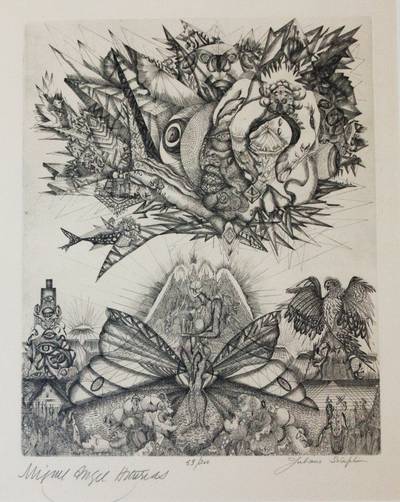

Essays
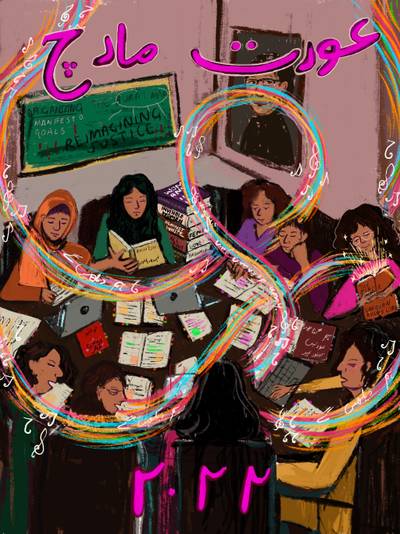

The 2022 Aurat March ‘Reimagining Justice’ theme encourages the Pakistani society and the State to reimagine legal, economic, and environmental justice to align with a feminist future. It asks that a new and more inclusive perspective of justice be envisioned, expanding its definitions beyond the limited ones granted under the patriarchal system and its legislation.
READAurat March: Reimagining Justice Through Sisterhood & Solidarity
Sheherazade Amin articulates the significance of a feminist movement envisioned with an inclusive perspective of justice.
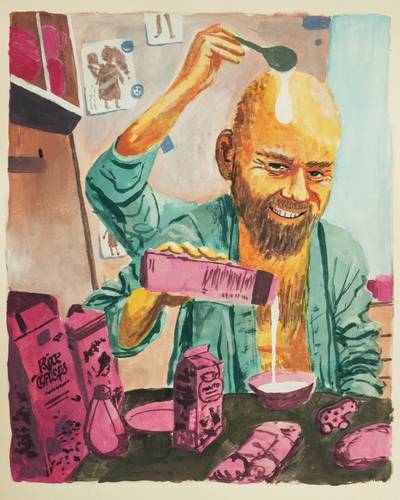

I’ve never felt comfortable exploring my sexuality, and I think I need to engage in this aspect of my creative life. I’m worn, strained and feel a need to revitalise myself. What I’m doing here is an attempt to come to terms with my curiosity. But I might be overdoing it. Instead of working with my issues, I’m jumping in headfirst and committing a public sex act to get over it. We all have to start somewhere, right?
READPersonal Decamerone
Eero Yli-Vakkuri on considering sex work as artistic practice.
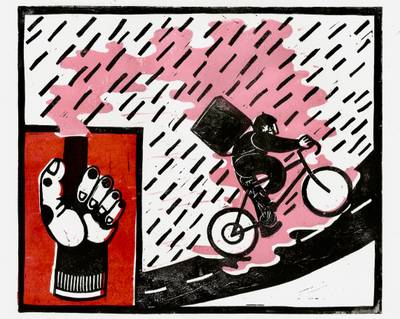

customer aggressively informs me that he accidentally put in his parent’s address and that i need to take the order to his. he messaged me through the app apparently but, with no signal in the building, i can’t see it. using the younger brother’s phone, i type the address into google maps - it’s two and a half miles away.
READThe Brink of the Platform: Riding With Deliveroo
How can algorithmic management lead to authoritarian management and precarious jobs?
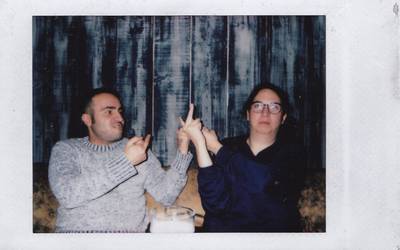

How is it expected of artworkers without access to employment security and no business background to be able to sustain their organizations and initiatives once their grant runs out? Could funding bodies come together to create the possibility of dialogue, the sharing of experiences, and the development of a body of knowledge and toolsets around the topic of post-funding survival and economic sustainability for the initiatives they fund? Or at least create a space for questioning and analysing these futures?
READTaidekirppis: What Happens When an Archive-Based Project Ends Prematurely?
Andrea Coyotzi Borja, Farbod Fakharzadeh on the perils of short-term funding and the cycles of affirmation, abandonment, despair, and continuation it propels.
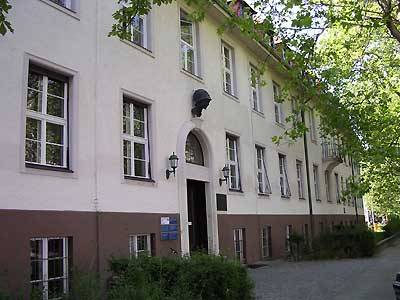

For the past year, I have been teaching the course “Decolonise your Studies” at Aalto University with Kiia Beilinson. Settling on this title was an effort to inspire action, despite believing it’s not really possible to decolonise academia. Teaching the course filled me with feelings of inadequacy and doubt. How can we make sure this course does its name justice, especially in a colonial country like Finland that is still oppressing Sámi peoples’ rights? Are we only playing into an empty buzzword culture that is actually damaging to indigenous rights? How can we justify teaching this course at a university, with its structures of institutional violence?
READOn the Limits and Possibilities of Decolonising Universities
Prompted by the feelings of inadequacy when teaching “Decolonise your Studies”, Miia Laine reflects on her experiences with decolonial work at three universities in Germany, the UK and Finland.
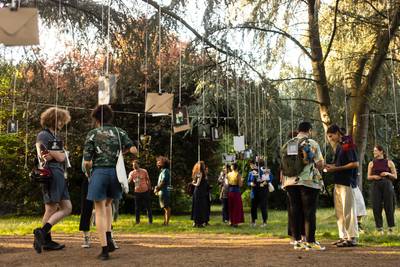

Mishandled Archive started in 2017 when Tara Fatehi Irani dispersed an archive of family photographs and documents in public places and created a dance at the site of each dispersal–once a day for a whole year. This led to the creation of a new archive of 365 photographs and dance scores, a performance-installation and a book. In summer 2021, Tara presented the first outdoor performance of Mishandled Archive. She invited poet Nisha Ramayya to attend this performance and write a response to it –to write around and through the performance and its themes, to create a text that thinks with this performance and allows its readers an alternative way into the project.
READChoreographing Dissonance: A Response to Mishandled Archive
On creative methods of daily storytelling through working with unofficial, unpublished, and neglected histories using the archive of family photographs and documents in public places.
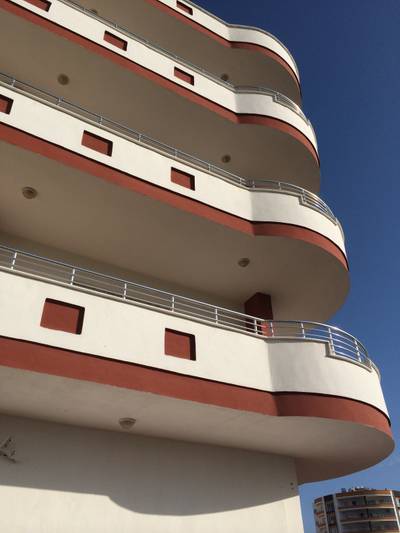

To find yourself in a new Syrian school, established in a residential building in Turkey, that teaches the Libyan curriculum to freshly-arrived Syrians, makes you want to tell stories about it.
READTemporary Peace
Shahi Derky’s poignant text about leaving Syria, seeking refuge in different places, and the unending exile of figuring things out, remembering many pasts, and imagined futures.
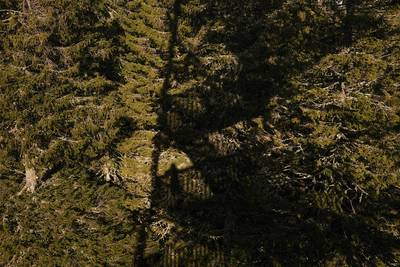

I believe that exhibitions have a reality-making capacity and a role in shaping public opinion. They can uphold, underpin or prop up ideas that are undervalued. Can curating then expand the way time is generally perceived? Can it attend to the crises of hope? An overview of display practices’ history at least reveals that curating has always reflected the current approach to time.
READIn the Crisis of Time
Mariliis Rebane on dystopian narratives and how can curatorial practices contribute to imagining alternative futures and maintaining hope in the time of crisis.


READ
The Silent “Forest”
Ingrid Fadnes writes about the forced eucalyptus plantations in Brazil and its brutal aftermath on local habitat.
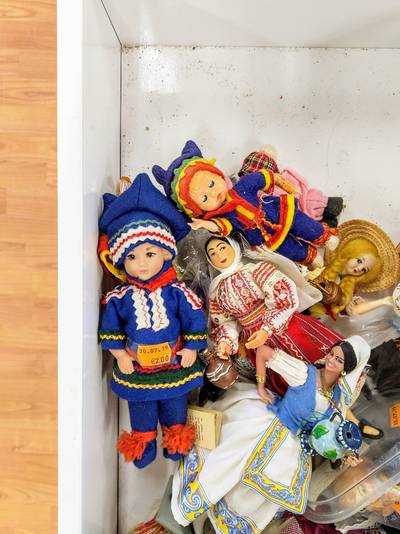

Dolls that imitate the Sámi can be purchased at a souvenir shop or flea market, where they usually end up. There I face these dolls, as our paths cross second-hand and intertwine into a play in the quiet hours, hidden from view. Why do I get the impression that when the dolls are abandoned, they are at their most revealing? The setting is always the same: a brightly coloured gift shelf, a shabby box, or a vague, provocative shelf.
READSeeing My Self-Image in Dolls That Imitate the Sámi People
Helga West on the politics of souvenir dolls that exoticize the Sámi people.
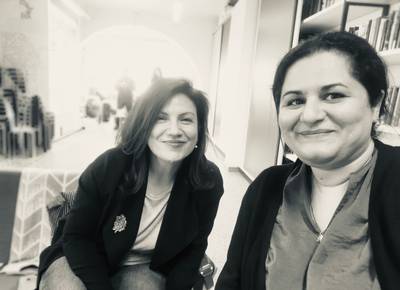

For this digital space given to us, we opened a Pandora’s Box to reveal why today some of us are still excluded from the so-called ‘winner’s table’. We decided to have a conversation to reflect on the Finnish chapters of our lives, our dreams, and achievements, but we also talked about simple things that could unveil sophistication hidden in simplicity if one wishes to see it.
READA Window to Listen
Sepideh Rahaa and Ceyda Berk-Söderblom’s reflections on equity, inclusion, and social justice in arts and culture in Finland.
